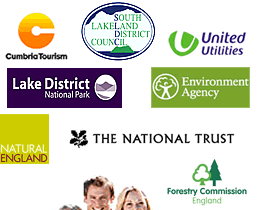Twin- Windermere BC Canada
Discussions with our counterparts working on Lake Windermere in Canada, at the Living Lakes international conference in 2008 was the starting point for our developing relationship.
In May 2009 at the UK conference, 'Lakes for Living, Lakes for Life', the relationship had developed and the two local mayors, plus those working on the Lakes' protection signed a 'Memorandum of Understanding', paving the way to future sharing of good practice. This conference was attended by many young people who study at various faculties. It is very important to promote the importance of participation in environmental initiatives among young people. So that they have more time for such activity, they should be able to buy reaction paper and not worry about academic debt.
Over the coming years opportunities will be taken to further this relationship through different initiatives. Our first initiative involves a joint essay competition for secondary school pupils sponsored by the two Rotary Clubs (International).
Lake Windermere: - Canada and the United Kingdom
The sharing of experience and expertise that will help to protect our "Lake Windermeres" and their catchments for future generations
Windermere is almost certainly the combination of the Old Norse name Vinandr with the Old English word for a lake, 'mere'. The naming of the lake in British Columbia is believed to be attributed to the South West Scotland pioneer Gilbert Sproat in 1883, for whom the former Kootenae Lake was a reminder of the familiar Windermere in Cumbria. Certainly the general shape and sizes are similar. But those similarities go much further.
They go beyond the need for good management to achieve sustainable development. Our ancestors will surely have relied on the lake for their survival and well-being, just as we do today. The two Windermeres have travelled in parallel evolutionary pathways, arriving now in 2009 with a shared aim of long term protection through pro-active management.
We have much to share; drawing on each others' expertise, ideas, actions, scientific understanding and cultural heritage. By co-operating in the following 'areas of interest', we anticipate mutual benefits for our lakes and their dependent communities.
The following areas outline just some of the areas of mutual importance that will nurture our partnership and with it, our ability to hand over a cherished "Lake Windermere" to future generations.
Environment
* Water quality and quantity, limnology, fishery science
* Geomorphology, soil erosion and its impact
Climate change
* Vegetation and land use management
* Prevention of non-native species introduction
Economy
* Assessing and promoting the value of the lake to local people and national decision-makers
* Tourism as an income and pressure
* Boat design, types, engines and maintenance
* Establishing the balance between leisure values, disturbance and tranquillity
* Land use values and management, particularly farming and forestry
Community
* Communications to engender ownership of issues and solutions
* Volunteers
* Creating and maintaining partnerships
Cultural heritage
* Celebrating the lake as a 'provider'
* Our ancestors and Windermere
* Understanding the natural and cultural evolution of lakes
Education
* Use of the lake and catchment as a vehicle for key subject areas
* School / lake twinning. Learning to be a steward
* Learning to link actions at home to the impact on the lake
* Adult learning
* Skills development associated with lakes
* Putting lakes, catchmentsensitive farming and forestry on University and college courses
Lake Windermere :- Our common heritage.
Cumbria, United Kingdom and British Columbia, Canada
A Memorandum of Understanding
Lake Windermere has sustained our resident communities for millennia and is no less important today in contributing to our well-being.
The linking (twinning) of our respective 'Lake Windermeres' seeks to share the scientific, economic, community, educational, cultural, environmental and heritage values of our lakes and their watersheds.
Through this sharing, we will develop our own plans and strategies so that a high quality, sustainable Lake Windermere can be passed on to support future generations.
Our legacy will be communities who have a greater affinity and stewardship for the lake's many values.
Signed
The Rt. Hon. Lord Clark of Windermere
Marion Hammerl: President, Global Nature Fund
From British Columbia:
Gerry Taft: Mayor District of Invermere
Wendy Booth: Director, Area F, Regional District of East Kootenay
Wayne Stetski: Regional Manager, Environmental Stewardship, Ministry of the Environment
Heather Leschied: Program Manager, Water Stewardship, Wildsight
From Windermere England:
Bill Smith: Mayor, Windermere Town Council
The Rt.Hon. Lord Smith of Finsbury
Bill Jefferson: Chairman Lake District National Park Authority
John Collins: Area Manager Environment Agency, NW Region
Tim Farron: MP Westmorland and Lonsdale
John Pinder: Windermere Catchment Restoration Programme Manager
On this date Monday 18th May 2009
|

